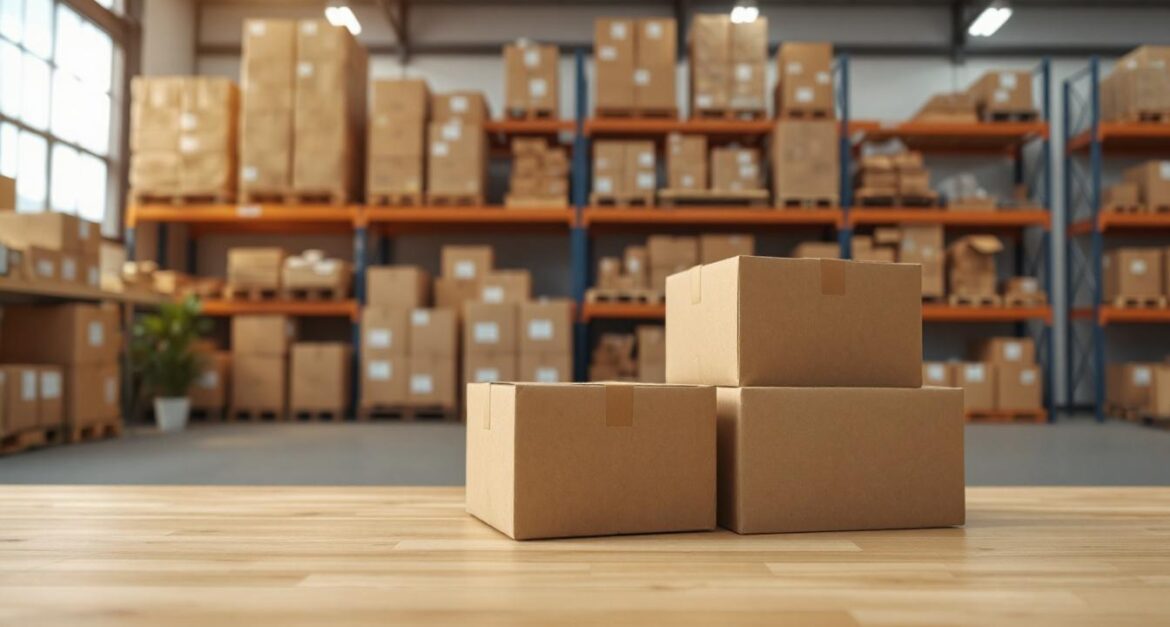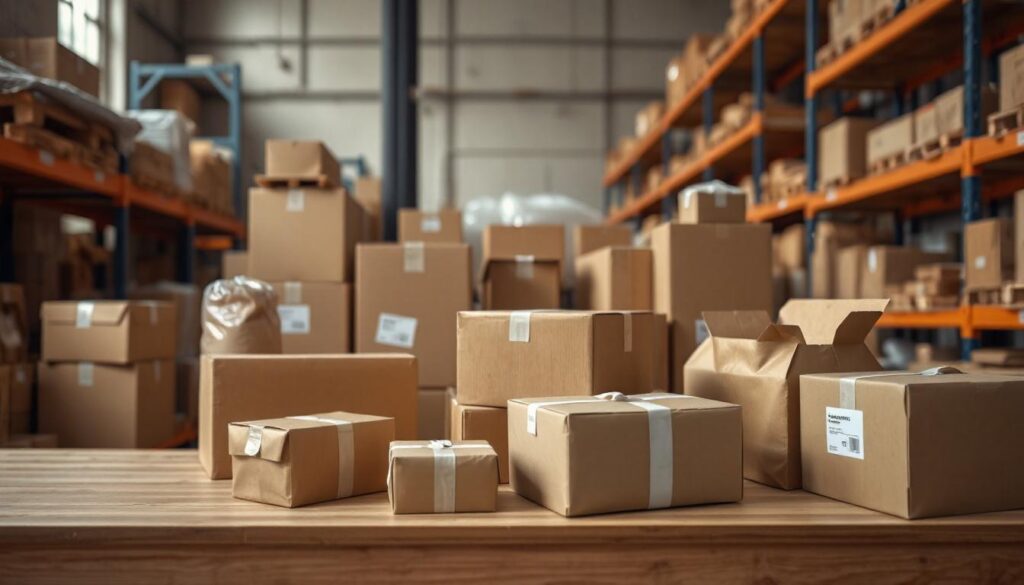
Why Eco-Friendly Packaging Is Important for Small Businesses
In today’s market, sustainability is more than a trend—it’s a necessity. Eco-friendly packaging solutions allow small businesses to reduce their environmental impact while appealing to eco-conscious customers. Moreover, green packaging enhances brand reputation, meets regulatory standards, and demonstrates corporate responsibility. By adopting green packaging for small businesses, companies can align with consumer values and gain a competitive edge.
Types of Eco-Friendly Packaging

Eco-Friendly Packaging Solutions for Small Businesses
Choosing the right sustainable packaging options depends on the specific needs of your business. Here are three popular types:
- Biodegradable Materials
Biodegradable materials break down naturally without harming the environment. For instance, plant-based plastics and paper products are excellent alternatives to traditional materials. - Recyclable Options
Recyclable packaging, such as cardboard boxes and aluminum cans, encourages customers to reuse or recycle. Additionally, it minimizes waste and promotes circular economies. - Compostable Solutions
Compostable packaging is ideal for food and organic products. Items like compostable food trays or wrappers decompose quickly, enriching the soil rather than polluting landfills.
Benefits of Sustainable Packaging for Small Businesses
Switching to eco-friendly packaging solutions offers significant advantages, especially for small businesses aiming to optimize costs and improve customer relations.
- Cost Savings
Although sustainable packaging may have a higher upfront cost, reusable materials and bulk purchasing reduce long-term expenses. For example, businesses that use refillable containers save on repeated material purchases. - Customer Attraction
Eco-conscious consumers prefer brands that prioritize sustainability. Adopting green packaging for small businesses not only attracts these customers but also fosters loyalty through shared values. - Regulatory Compliance
Governments worldwide are enforcing stricter environmental regulations. Using biodegradable packaging materials ensures compliance, avoiding penalties and maintaining smooth operations.
Real-Life Examples of Eco-Friendly Packaging Success
Case Study: A Coffee Shop
A local coffee shop switched to compostable packaging solutions for its takeaway cups and lids. As a result, they reduced waste by 30%, gained new environmentally conscious customers, and strengthened their community presence.
Case Study: An Online Retailer
An e-commerce store implemented recyclable options for its shipping boxes and protective fillers. This move not only lowered their packaging costs but also improved customer satisfaction, as buyers appreciated the company’s eco-friendly initiative.
Tips for Implementing Sustainable Packaging
- Start Small
Introduce sustainable options gradually, beginning with the most impactful items like shipping boxes or product containers. - Educate Customers
Use your packaging to inform customers about its eco-friendly benefits and encourage proper disposal or reuse. - Partner with Green Suppliers
Collaborate with suppliers specializing in eco-conscious packaging to ensure consistent quality and supply.
Conclusion
Adopting eco-friendly packaging solutions is a smart and sustainable choice for small businesses. It reduces waste, enhances brand reputation, and appeals to environmentally conscious consumers. By prioritizing sustainable packaging options, businesses can improve their environmental impact while building customer loyalty.
Contact us today to learn how our biodegradable packaging materials and other sustainable solutions can support your business goals!




